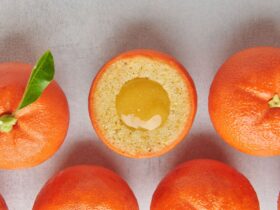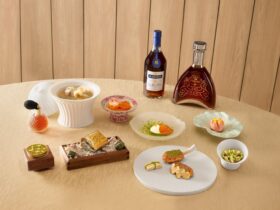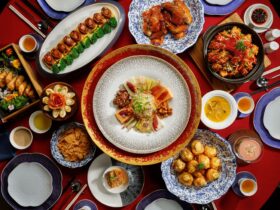Puzzled by all the Japanese terms on the menu? Here’s a break down on what’s what
The one wrapped with seaweed, the one with a piece of raw fish, the one wrapped in tofu skin, and the rice rolls. Using these descriptions might bring to mind the type one is talking about. However, not everyone may understand, and you would look like a complete “noob”.
Increase your sushi savviness by learning these terms. It’s a breeze once you practice a few times.
 Sashimi
Sashimi
Sashimi is just raw fish that can range from salmon to tuna, yellowtail or swordfish. The main difference is the absence of sushi rice.
It isn’t considered “sushi”, but it is usually listed next to the sushi in the menu.
Inari
You’d never think the nondescript “inarizushi” was named after a Shinto God. Sweet, deep-fried tofu skin is seasoned with a sweet mixture before stuffing sushi rice within it.
There are also various permutations with crab mayonnaise, egg mayonnaise and such, and these have found their way onto many conveyor belt sushi places in Singapore.
 Maki
Maki
The easiest of the lot to recognise, Maki are sushi rice rolls that are usually wrapped in seaweed with a pat of raw fish, pickles or cucumber.
There is also a variation called the “temaki”, which is essentially the hand-roll. Of course, in recent years, there are “reverse makis” with the seaweed on the inside as well.
 Nigiri
Nigiri
Nigiri is a ball of vinegared sushi rice that comes topped with a variety of ingredients, ranging from raw fish to octopus to Japanese omelette.
The fish ones typically come filled with wasabi in between but in Singapore restaurants usually leave it up to the customers to fill that space on their own.
 Gunkan
Gunkan
You know the seaweed wrapped sushi that comes topped with roe or, especially in Singapore, sometimes with tuna mayonnaise? That’s called gunkan.
“Gunkan”, or “battleship” in Japanese, is served with ingredients that are usually difficult to place on rice. The seaweed encases a small ball of vinegared rice, leaving some space at the top for the ingredients.
ADVERTISEMENTS










Leave a Reply